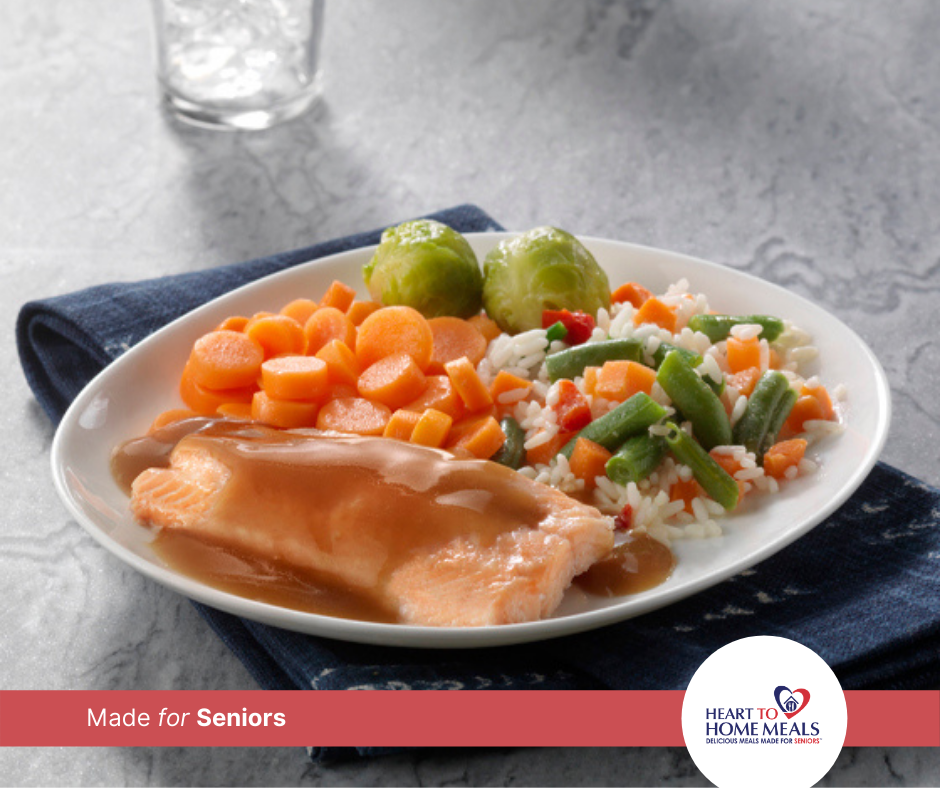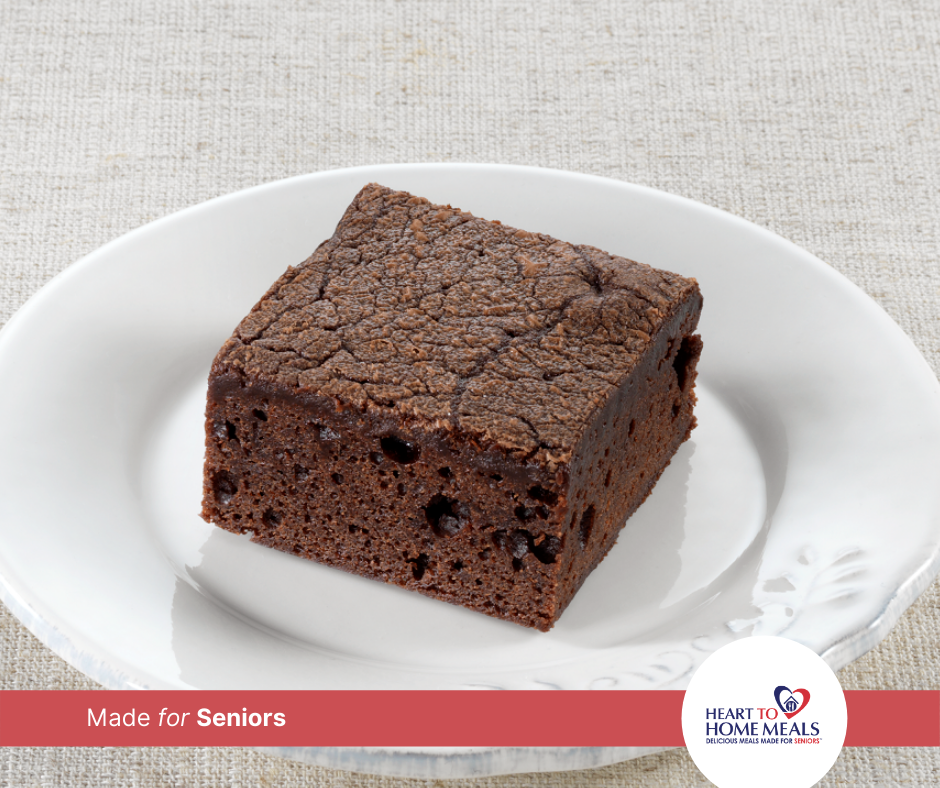
Sometimes, eating can seem a little mechanical. You know you need food, like a car needs gas or electricity, to run, and so meal time might seem like little more than a stop to refuel. But for humans, and especially seniors, what we eat can have a much greater impact on our day-to-day quality of life than simply keeping the tank full.
We’ve written before about the health benefits of eating foods rich in protein, and how they can maintain your muscle and mobility later in life. Certain foods can be great for building your body, but did you know eating can also impact your mood, memory and mental wellness?
Our brains are filled with a variety of chemicals, hormones and receptors that all react to the food we eat. In fact, Serotonin (sometimes called the “Feel Good Chemical”) is actually produced in our guts, and is directly impacted by what we eat. That means making smart choices about our meals can really affect how we feel, and give us an opportunity to improve our mental wellbeing.
How Food Affects How You Feel
What we eat has a major impact on how we feel. There’s a really simple example of this -- are you familiar with the term “Hangry”? This portmanteau of hungry and angry describes the grumpiness many people experience when they are inadequately fed. It’s a direct connection between the discomfort of hunger and our mood. Eating food high in protein and fibre can help you stay full and avoid feeling “hangry” throughout the day.
There are also nutritional impacts on how you feel as well. Certain chemicals like Omega-3s have been shown to combat depression and improve mental wellness when eaten in substantial enough quantities. Omega-3s and other brain-boosting amino acids can have long term positive impacts on your emotional wellbeing and should be part of any diet.
In the shorter term, vitamins and minerals that provide energy and help regulate it are shown to help you maintain a good mood. One of these is B-12, which is most commonly found in meats and dairy products, but is available for plant-based eaters in legumes. Even if you do eat a lot of animal products, taking a complex B vitamin supplement is a good way to take full advantage of its energizing benefits.
4 Foods To Consider for Your Mood
When you’re reaching for your next snack or meal, consider the contents and how they impact your emotional state. Here are a few mood-boosting foods that will help you not only feel full, but good too.
1 - The Trail Mix Usual Suspects: Reach into a bag of trail mix, and you’re more than likely to pull out a handful of some of the best moods foods. Nuts, seeds and berries are all exceptionally good at helping you feel good, and the combination maximizes the impact. Not only are nuts and seeds high in protein and fibre which will help you stay full and avoid “hanger”, they are also rich in the chemical tryptophan which is an amino acid responsible for producing serotonin, which is one of the hormones associated with a positive emotional state. As for berries, there are some studies that suggest diets high in them may stave off depression. As for the short term, along with the proteins and fibre of nuts and seeds, a delicious bite of a sugary berry is a well-earned treat!
2 - Feeling Fine with Fatty Fish: As we noted above, Omega-3s are an essential nutrient for maintaining long-term mental wellbeing. And nowhere are they found in higher quantities than in fat-rich fish like salmon and albacore tuna. Because your body cannot produce Omega-3s on its own, your diet needs to be adjusted to ensure you’re receiving an adequate amount. Even if you’re not a fish fan, other foods (like eggs) are sometimes fortified with them, so make sure to keep your eyes out for Omega-3s on labels and descriptions.
Try our Maple-Flavoured Glazed Salmon - Fillet of salmon dressed with a delicious maple-flavoured glaze, served with a side of vegetable rice pilaf, brussels sprouts and carrots.
.png.aspx?width=500&height=419)
3 - Consider Fermented Foods: It can sometimes be surprising to think of just how much of our food is in some way fermented. From wine and beer to sauerkraut and kimchi, and even most breads, many of our foods rely on microorganisms to achieve its final flavour and form. However, not all fermented foods pack the same probiotic punch. Cooked and processed foods like bread and booze lack the live active cultures like kosher dill pickles and probiotic yogurt. It’s these foods with the live microorganisms that have been shown to stimulate serotonin production in the gut, helping to boost your mood.
4 - Treat Yourself with Dark Chocolate: Like all treats, chocolate is best consumed in moderation -- even in its dark form. That said, dark chocolate has many advantages over its milkier kin, including being lower in sugar, and containing more flavonoids which have been linked to increased brain health. Mostly, though, the taste and texture of dark chocolate are enormously pleasurable and can be a healthier alternative to a mood-boosting treat.
For a chocolate treat, try our rich and delicious Chocolate Brownie
.png.aspx?width=500&height=419)
----------------
There are plenty of foods available that can help improve your mood. Having access to them, and seeing what their nutritional makeup is will help you make informed choices about what to eat to help your emotional wellness. That’s why our meals are labeled and categorized to help you easily make food choices that are right for you, then conveniently delivered right to your door -- just one more reason for food to put you in a good mood.
Please don't forget to "like" and "follow" us on Facebook



-sq.png?lang=en-CA&ext=.png&maxsidesize=400&resizemode=force)